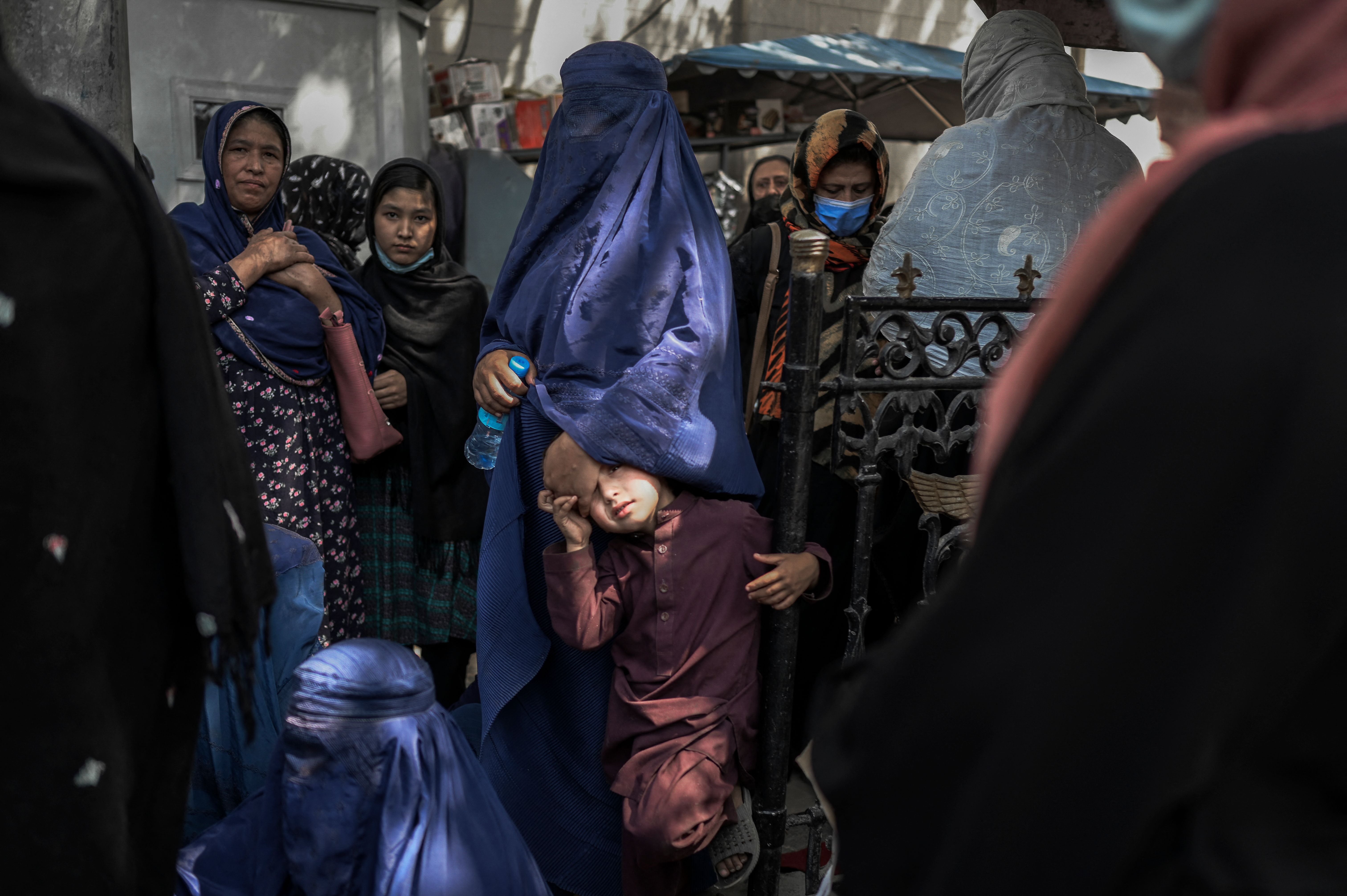UN warns of ‘colossal’ collapse of Afghanistan’s banking system
Afghanistan’s banking system was already vulnerable before the Taliban took power

Your support helps us to tell the story
From reproductive rights to climate change to Big Tech, The Independent is on the ground when the story is developing. Whether it's investigating the financials of Elon Musk's pro-Trump PAC or producing our latest documentary, 'The A Word', which shines a light on the American women fighting for reproductive rights, we know how important it is to parse out the facts from the messaging.
At such a critical moment in US history, we need reporters on the ground. Your donation allows us to keep sending journalists to speak to both sides of the story.
The Independent is trusted by Americans across the entire political spectrum. And unlike many other quality news outlets, we choose not to lock Americans out of our reporting and analysis with paywalls. We believe quality journalism should be available to everyone, paid for by those who can afford it.
Your support makes all the difference.The United Nations on Monday pushed for urgent action to prop up Afghanistan’s banks, warning that a spike in people unable to repay loans, lower deposits and a cash liquidity crunch could cause the financial system to collapse within months.
In a three-page report on Afghanistan’s banking and financial system seen by Reuters, the UN Development Programme (UNDP) said the economic cost of a banking system collapse - and consequent negative social impact - “would be colossal.”
An abrupt withdrawal of most foreign development support after the Taliban seized power on 15 August from Afghanistan’s western-backed government has sent the economy into freefall, putting a severe strain on the banking system which set weekly withdrawal limits to stop a run on deposits.
“Afghanistan’s financial and bank payment systems are in disarray. The bank-run problem must be resolved quickly to improve Afghanistan’s limited production capacity and prevent the banking system from collapsing,” the UNDP report said.
Finding a way to avert a collapse is complicated by international and unilateral sanctions on Taliban leaders.
“We need to find a way to make sure that if we support the banking sector, we are not supporting Taliban,” Abdallah al Dardari, head of UNDP in Afghanistan, told Reuters.
“We are in such a dire situation that we need to think of all possible options and we have to think outside the box,” he said. “What used to be three months ago unthinkable has to become thinkable now.”
Afghanistan’s banking system was already vulnerable before the Taliban came to power. But since then development aid has dried up, billions of dollars in Afghan assets have been frozen abroad, and the United Nations and aid groups are now struggling to get enough cash into the country.
The UNDP’s proposals to save the banking system include a deposit insurance scheme, measures to ensure adequate liquidity for short- and medium-term needs, as well as credit guarantees and loan repayment delay options.
“Coordination with the International Financial Institutions, with their extensive experience of the Afghan financial system, would be critical to this process,” UNDP said in its report, referring to the World Bank and International Monetary Fund.
The United Nations has repeatedly warned since the Taliban took over that Afghanistan’s economy is on the brink of a collapse that would likely further fuel a refugee crisis. UNDP said that if the banking system fails, it could take decades to rebuild.
The UNDP report said that with current trends and withdrawal restrictions, about 40 per cent of Afghanistan’s deposit base will be lost by the end of the year. It said banks have stopped extending new credit, and that non-performing loans had almost doubled to 57 per cent in September from the end of 2020.
“If this rate continues of non-performing loans, the banks may not have a chance to survive in the next six months. And I am being optimistic,” Mr al Dardari said.
Liquidity has also been a problem. Afghan banks heavily relied on physical shipments of US dollars, which have stopped. When it comes to the local afghani currency, Mr al Dardari said that while there is about $4 billion (about £2.98 billion) worth of afghanis in the economy, only about $500,000 (£370,000) worth is in circulation.
“The rest is sitting under the mattress or under the pillow because people are afraid,” he said.
As the United Nations seeks to avert famine in Afghanistan, Mr al Dardari also warned about the consequences of a banking collapse for trade finance.
“Afghanistan last year imported about $7 billion (about £5 billion) worth of goods and products and services, mostly foodstuff ... If there is no trade finance the interruption is huge,” he said. “Without the banking system, none of this can happen.”
Reuters
Join our commenting forum
Join thought-provoking conversations, follow other Independent readers and see their replies
0Comments